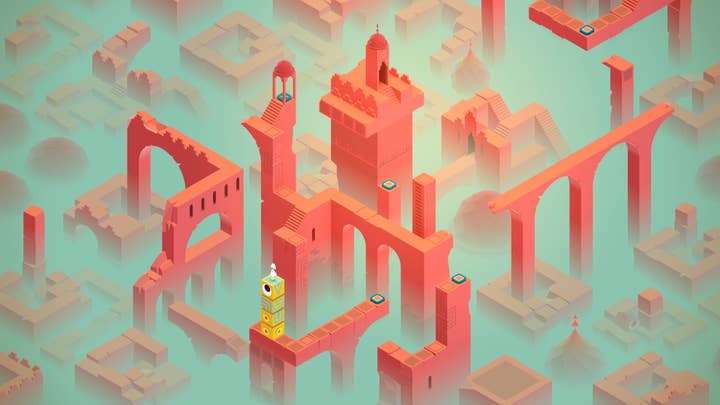The accidental, inimitable success of Monument Valley
Danny Gray on the impossibility of manufacturing a hit, how premium mobile games survive through subscription models, and how the last decade irrevocably shaped Ustwo Games
This April marks the tenth anniversary of Ustwo Games' breakout hit, Monument Valley.
The qualities that make Monument Valley a great game are multifaceted, every aspect of it potentially worth dissecting, from its art direction to its narrative design to its minimalism. But there's something particularly special to be said about its main mechanic, and the pure joy of experiencing its optical illusion puzzles for the first time, seeing reality shift before your eyes.
"I spent ten years trying to find something that is like Monument Valley again, and it's not through lack of trying," laughs Ustwo's chief creative officer Danny Gray, talking about the game's main mechanic.
"[It's] not just a story about Monument Valley, it's a story about [Ustwo] – because the entire company got built around what worked"
Gray joined the developer in 2013 and was part of Monument Valley's original team. We meet on the game's exact anniversary on April 3, at the developer's newly refurbished London office.
Ustwo operates with a hybrid model, and a lot of its staff don't come to the office every day. But on that day the space is buzzing, and we catch developers wishing each other a 'happy anniversary' with a smile ahead of further celebrations that afternoon.
"[It's] not just a story about Monument Valley, it's a story about the company – because the entire company got built around what worked," Gray says.
What worked in this case was a mechanically interesting game with a very unique hook.
"It's always been difficult and it'll forever be difficult [to create mechanically unique games]," Gray notes. "I had this conversation about Viewfinder recently. When you're ideating, that is like hitting a vein of gold that just keeps on giving. Sometimes you get to a mechanic where you're like: the entire game is this. This is perfect. Not every game is going to do that. And that doesn't mean that those games are worse. Sometimes games are a combination of all their mechanics.
"You can play something like Civilization or Cities: Skylines and it's more about the combination of all its parts rather than a key mechanic. But I think when you're a designer, that's the holy grail, getting to something when you're like, 'Wow, this is what the entire game is going to be based on.'"
Funnily enough, what ended up being one of the most recognisable aspects of Monument Valley — its geometry puzzles — started as an anomaly.
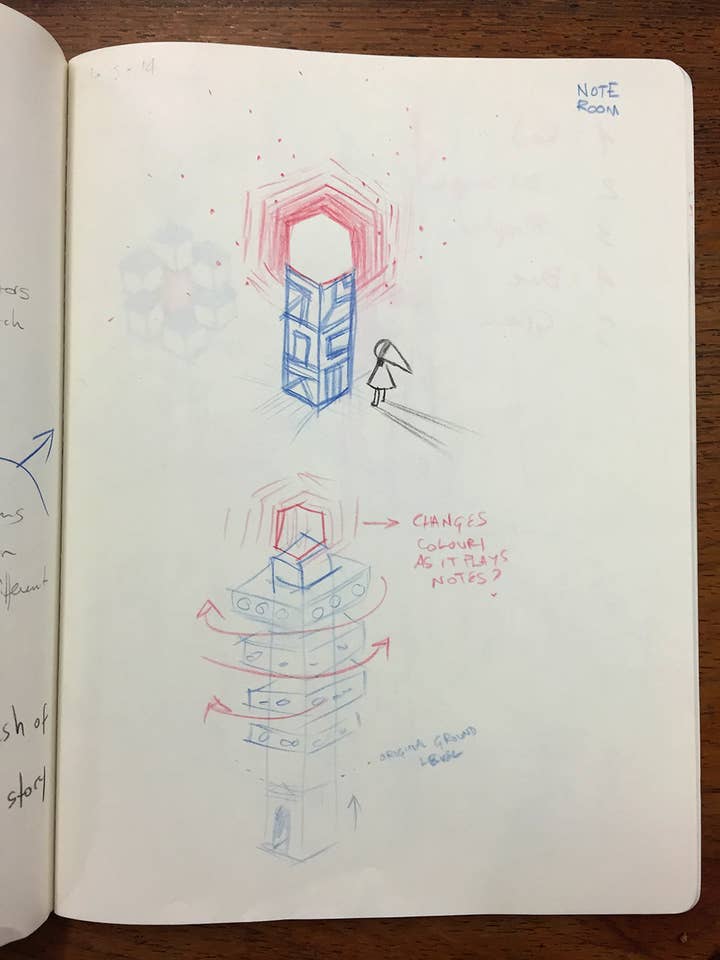
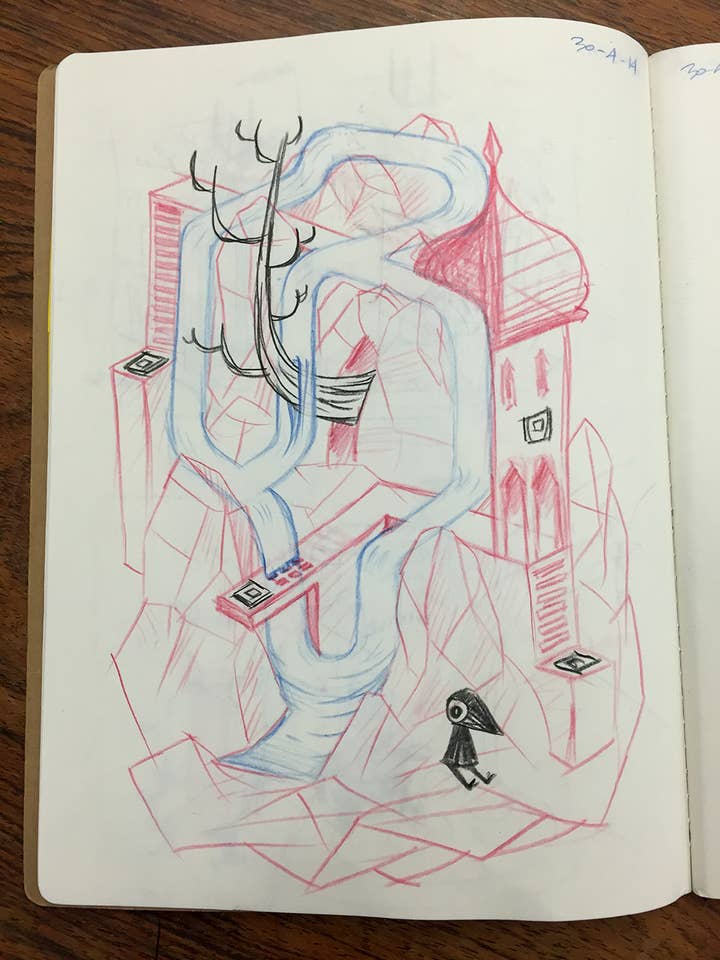
"We built something that was an isometric puzzle game and the idea of impossibility came as a bug initially," Gray recalls. "Things weren't supposed to be layered in that way and you weren't supposed to navigate between those layers. That's actually the best thing about this game, that we just built by accident. And then we based the whole game on that, got it done within a year. I still, to this day, don't understand how we made that game in a year. And every game since then takes... however many more people and more time."
He quickly adds: "It's probably due to the fact that most of us were in our late 20s and we crunched to do it, which is something we don't do anymore. So it's probably more like two years in modern time!"
Monument Valley released on iOS for the first time in 2014 and since then has been installed over 160+ million times across platforms. It won a DICE Award and two BAFTAs, and will be releasing on Netflix alongside its sequel later this year.
"I spent ten years trying to find something that is like Monument Valley again"
Its success is also multifaceted and is down to more than just its strong mechanical hook or art direction. Gray says it's been many years trying to reverse engineer what went so right and work out what made it such a hit.
"And I think the best place to end up is: oftentimes you can't just manufacture a hit. It's got to be good, but it's also got to be in the right place at the right time. I think it's really unhealthy to think that the success of something is purely down to how good you were. It's just never true. There's plenty of people who make great things. But if it's not the right place, right time…"
Thinking back about the mobile ecosystem ten years ago, Gray notes that while the App Store wasn't brand new, it was in a phase where "innovation could really rise to the top" and it wasn't crowded yet. He also notes that people discovered games in a different way then.
"They used to check the App Store and go: what's there? That doesn't happen anymore. People get a new phone and they'll go, 'Cool, I'm gonna [download] TikTok, Instagram, Candy Crush and one or two other games'. Then maybe they'll get advertised stuff out of that [and] they'll go and download directly.
"Back then it was probably the right time that a game like that could go through mainstream media and reach a certain amount of people, but I think people were just looking for beautiful things to play on their phone really, and that was a form of escapism. It's kinda why I'm excited for Monument Valley 3. Because it feels [like] it was the perfect sanctuary in your pocket, to escape the world from. Instead of worrying you about money, advertising, in-app purchases, all this stuff, it just allowed you to experience something that was beautiful. And I think we need that now more than we did ten years ago."

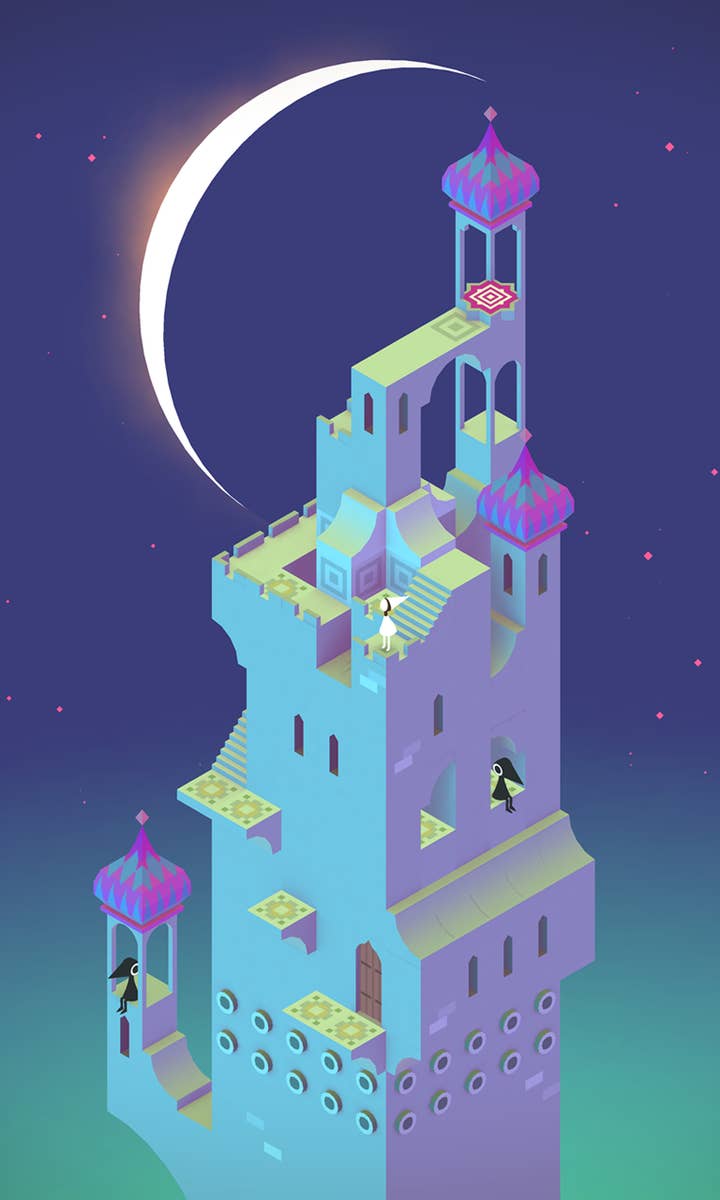
With the next Monument Valley on the horizon (the name hasn't been officially confirmed yet), it's fair to wonder whether a game like this – a premium, indie, mobile-first title – can succeed in today's ecosystem. But equally, things that were criticised about Monument Valley at its launch, such as its short length and its relative easiness, are strong selling points these days, and there is more space for games like it.
"We're gonna find out, right?" Gray laughs. "I think there's still a desire for this kind of thing, more than ever. I remember having a call with a business partner just before Monument Valley came out. And they couldn't get their head around it. They're like, 'Right, so it lasts two hours, it doesn't have in-app purchases, it doesn't have leaderboards, it doesn't have adverts... Well, why are you making this again?' No one could get their head around it.
"I think this is what's made me a little bit resistant to data, a little bit too much. Because if you only ever follow what the data suggests is going to be successful, you're only ever going to make the same thing that's already out there. And if we'd done that ten years ago, Monument Valley wouldn't have existed. So the idea of having something that is just a beautiful escape, I think is needed now more than ever because things are a lot more crap now than they were in 2014."
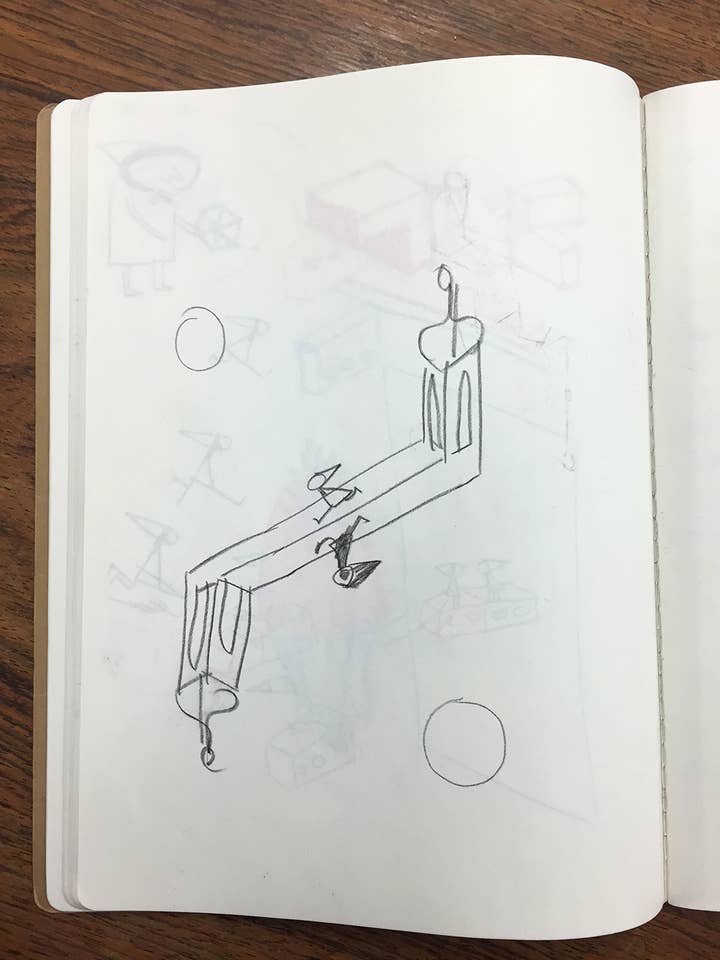
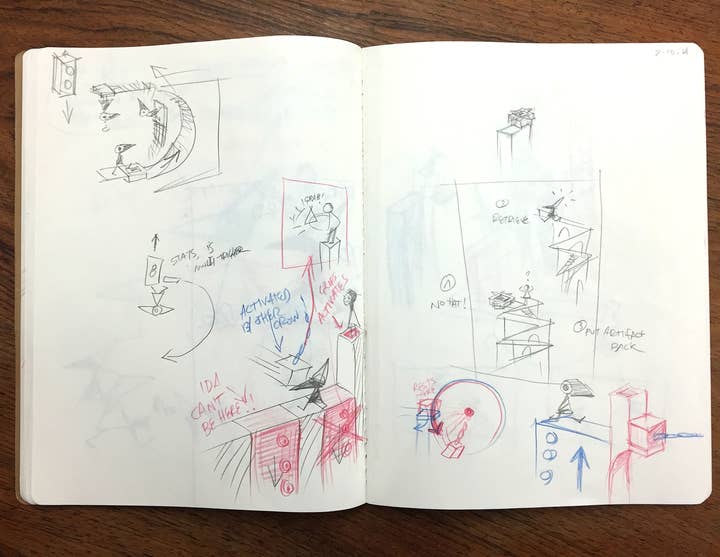
Subscription services such as Netflix's game offering or Apple Arcade should help with selling a game like Monument Valley 3, Gray adds.
"Because there's not a direct value exchange with a player," he points out. "So back then, clearly, there were 100 million people who really loved the idea of going, 'I'm going to give you a couple of dollars and you're going to give me two hours'. But nowadays, if we're going to do stuff with subscription platforms, that means we're not asking you for money to play this game. You'll have a whole bunch of different games to play on the service. You can decide which one you want. If you go and spend the evening with Monument Valley 3, then brilliant. So you're not gonna have that complaint of 'I gave you £3, and you only gave me a few hours'. I think it's the perfect time."
"I still wish that we could go to mobile players and say, 'Give us £3 or £4, play this game'... I hope that we find a way to keep short games going"
Ustwo has had successful experiences with subscription services, with Assemble with Care and Alba: A Wildlife Adventure releasing on Apple Arcade, and Desta: The Memories Between on Netflix. But Gray does say he wished both business models were still viable, with premium mobile now beyond challenging.
"I still wish that we could go to mobile players and say, 'Give us £3 or £4, play this game'. A [subscription] method is still about retaining users on a monthly basis. So you do have to change how you make games a little bit. But I also think, looking at where the App Store was going, it was the right thing to try; trying to create a platform where games like Monument Valley could continue to exist. Without them, they [would not]. If you just left it completely up to app store market forces, premium games were already on the way out, and they would have gone completely. So we've got these platforms that allow us to continue to make games like that.
"And as I said, I think it's really great that you've separated value from the player. So they're not judging a short game. If you watch Netflix, you don't play an episode of a TV show or a movie and go, 'Oh god, that was so short!' You just watch something else, right? So it's a really good thing about this."
.png?width=720&quality=70&format=jpg&auto=webp)
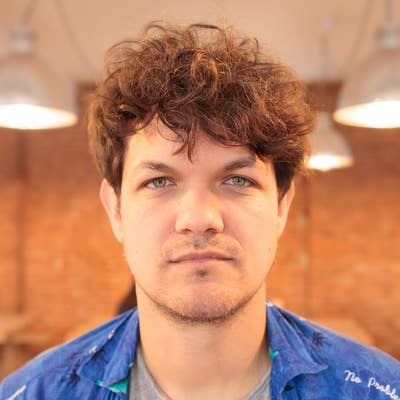
Gray adds that people judging a title's value based on its length is one of his biggest frustrations with the games industry, pointing out that movies don't get better if they're longer.
"Part of what we consciously did with Monument Valley 1 is we said, 'Okay, we've got a small team, what would happen if we took all the polish and effort [that could go] in a game that was 100 hours, and put it in something that was two hours?' And we ended up with Monument Valley [and] with this whole bunch of new stuff on a level-by-level basis, and everything feels super precious. So I hope that we find a way to keep short games going. When you see that stuff on Steam, it works. I just feel like there's [something] on mobile specifically, where an entire type of game is kind of being lost."
It's obviously not just the market that has changed in the past ten years. With the next Monument Valley, Ustwo is passing the torch to a new wave of developers within the studio, with Gray noting he's not involved with the game's development and that a "whole new bunch of people" are leading that team.
"[It's] also not just a group of guys, which is what Monument Valley 1 was," he adds. "It's nice that it's not the same group of six, eight [guys]. That's what is going to make it super fresh instead of being more of the same."
While there's a lot that's still unknown about a Monument Valley 3, he says that the aim is to take the best of its two predecessors, "add on to it again, and then change the art style so it's very fresh for 2024."
Ustwo's approach to developing the game will align with its usual strategy, which means "ensuring that creatives can inject some personal stories and feelings into the things that [they] make, to make them genuine," Gray continues. Monument Valley 2 tackles the theme of parenthood because team members had recently become parents, for instance, but each Ustwo game is intrinsically linked to its team's experiences.
"Alba wouldn't exist without David [Fernández Huerta] and Kirsty [Keach], and bringing in that really genuine Spanish flair to what happened. And same thing with me working on Desta – it's the most northern English game that exists," he laughs. "I think that's been our special serum from that point. It's [about] leaning into the creatives, trusting them, to inject some of their own personality."
"If you only follow what the data suggests is going to be successful, you're only ever going to make the same thing that's already out there. And if we'd done that ten years ago, Monument Valley wouldn't have existed"
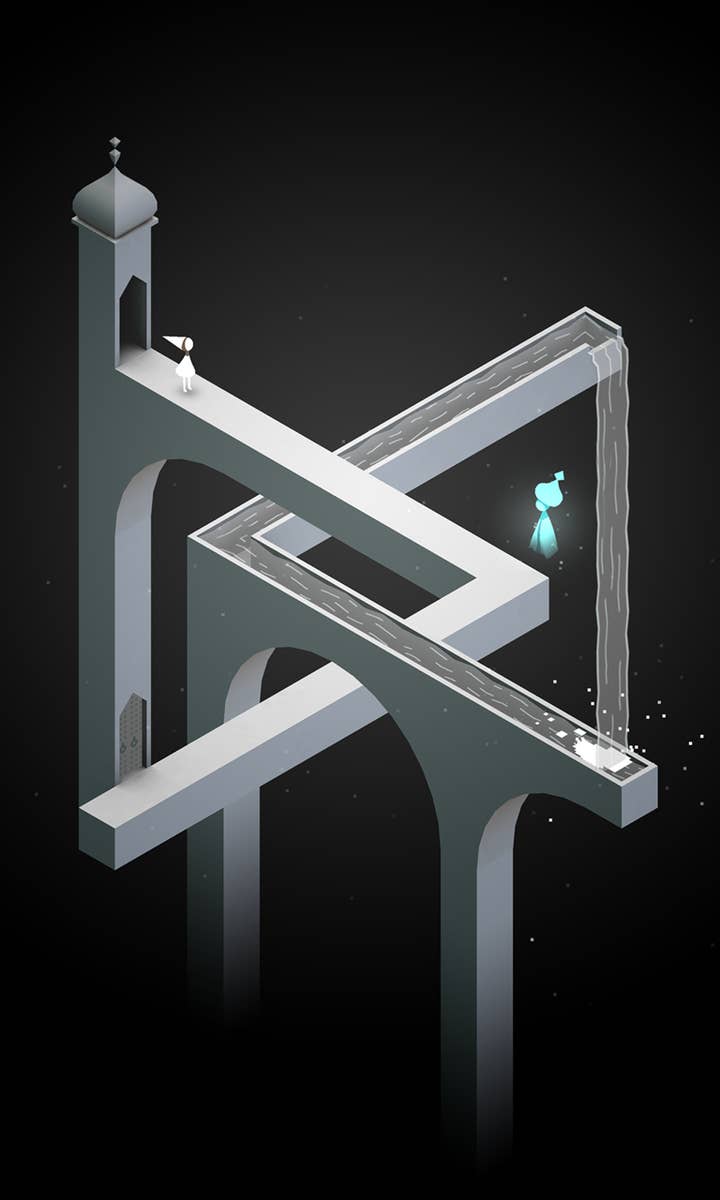

Ustwo is known for its sustainable approach to both making business and making games. In an era prioritising shareholders and layoffs, the London studio most definitely has a different perspective.
"I just went to this roundtable at GDC [about] best practices for balancing people, planet, and profit; not just the idea of how you balance them but how they can empower each other. Our staff turnover [is] really low. That means we're not taking time away from the games to look for new people, not spending money on headhunting people and doing other bits, but concentrating on the games. So treating people well and investing in that, and giving them good benefits."
As an example, he points out that he's just about to go on paternity leave again for a few months, and also mentions the studio's profit sharing system. The company has been vocal in the past about its ecological values, and its desire to help the next generation of devs. The company's approach and its virtuous circle impact and profit every aspect of its business.
"Gen Z is the first generation to care more about the values of an employer than its salaries. That doesn't mean that you should underpay everyone"
"Being a good business can be good for business," Gray smiles. "Gen Z is the first generation to care more about the values of an employer than its salaries. That doesn't mean that you should underpay everyone. It means it's changing priorities of what people care about."
He mentions that it's not only good for staff, but also for platform holders and other partners who work with you, because they benefit from the splash effect and it makes them look good, too. So running a balanced, sustainable business that truly takes care of its staff is a win-win-win situation.
"We've never done any rounds of redundancies, we've grown steadily, which I think is down to how independent we have been. I think that if we were owned by somebody else, we would have been forced to scale quicker and more," Gray says, touching upon its parent company, design firm Ustwo. "We've grown from eight people to 40 people in ten years. Which is not a lot. We make three games at once now instead of one.
"We've made indie-style games but with proper company-style support and methodologies for things. A really well-run but small company that looks after people, tries to make products with values, and makes partners look good; that's always been the emphasis. Plus it would be stupid to not mention the fact that we've had one really big hit game and a sequel that do a lot of the heavy lifting when it comes to the finances."
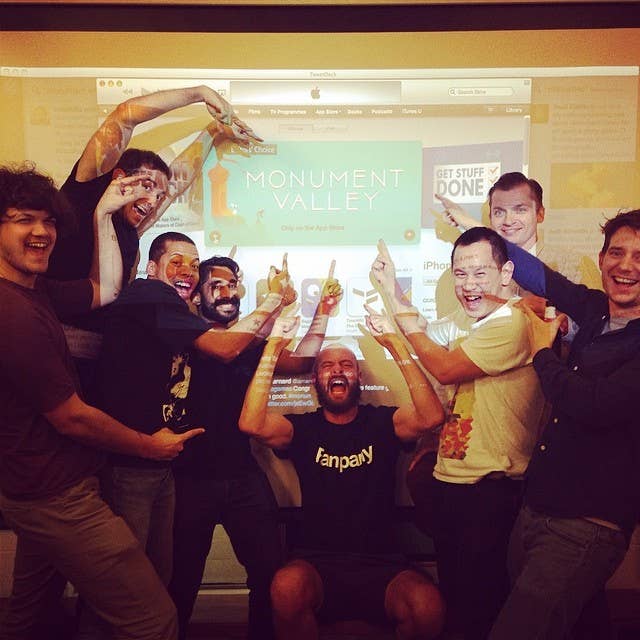
The two other projects the studio is currently working on besides Monument Valley 3 are doing "very, very different things," Gray adds, noting Ustwo's ambition to branch out a little bit, do things on more platforms, and tackle different genres. That's not even mentioning the six different prototypes Gray is currently working on.
"This next wave, after Monument Valley 3, will be us branching outside of our comfort zone even more in terms of genres and platforms," he says, adding with a laugh that Desta was already "the most gamey game" Ustwo had ever done.
"That was us pushing our boundaries. We often talk about democratising genres. So, taking something like turn-based tactics that can sometimes put certain players off because they're usually about space marines or fantasy stuff. [But] what if it was about normal people? So humanising certain genres that can feel quite abrasive to certain groups of people. That will probably continue going forwards."
Looking ahead, Gray shares his desire to produce resources that would go into more details about how Ustwo grew from a small team of people with no structure or HR processes to a "well-run 40 people company."
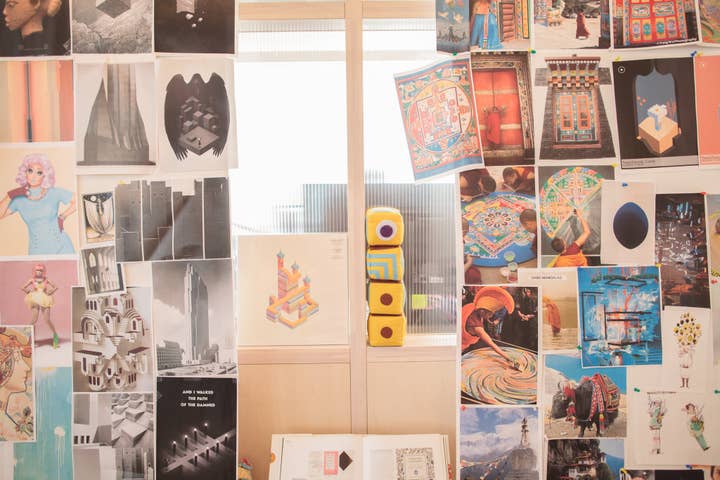
"I really want to [pass] that knowledge down," he says. "And just acknowledge the privilege we are to be in this situation ten years later, when, as I said, half of it is making a good game, half of it is luck."
But slow, steady, and healthy growth is also on his list of hopes and dreams for Ustwo, as is "riding out the current industry storm" and trying their best to be a "good role model."
"Having made that game is a great achievement... But the bigger achievement is consistently making good games"
"We're talking about ten years of Monument Valley here, and having made that first game is a great achievement... But to me, the bigger achievement is consistently making good games," he concludes. "We've never had a bomb in those ten years. Monument Valley 1, we did Land's End for VR, Monument Valley 2, Assemble with Care, Alba, Desta. And we've got three projects now. So eight games in ten years pretty much. And they've all been really solid.
"And to me that's the biggest achievement because oftentimes you can't plan all that extraneous stuff I've been talking about; being at the right place at the right time, hitting some talking points socially that catch fire. You've got to be in the race. You've got to make a good game that when the quality of the product you make reaches the right market conditions, it can go big time. Like Monument Valley. I don't think you can plan to do a Monument Valley. But the hope is that we can continue to make really great games and one of the things that'll come out will go big time like that."
Sign up for the GI Daily here to get the biggest news straight to your inbox
